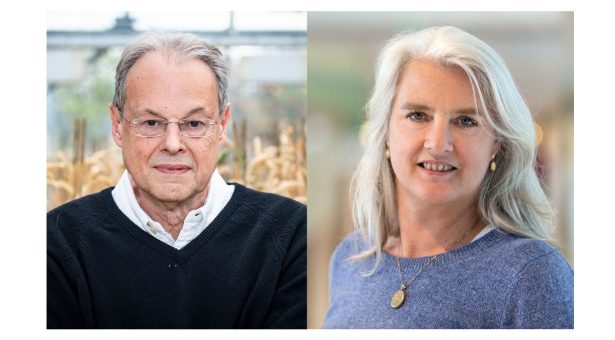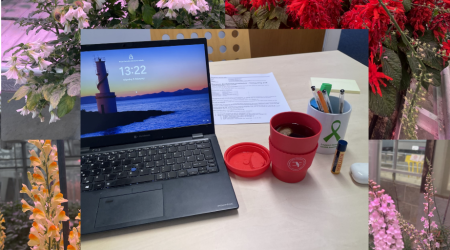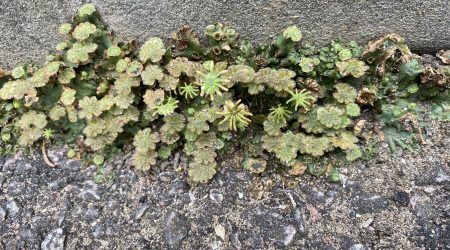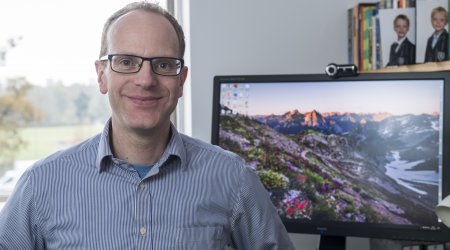Outstanding John Innes Centre scientists elected as Fellows of the Royal Society

Two leading John Innes Centre scientists have been elected as Fellows of the Royal Society.
Professor Graham Moore, who is director of the John Innes Centre and Professor Saskia Hogenhout, a group leader, are among 90 exceptional researchers from across the world elected to the Fellowship of the Royal Society, the UK’s national academy of sciences.
Professor Hogenhout has pioneered research on the functional characterisation of virulence factors from non culturable bacteria, which depend on their plant hosts and insect vectors for survival. Moreover, she has developed resources to study interactions of sap-feeding insect vectors, such as aphids and leafhoppers, with plants.
Her research group at the John Innes Centre, which is part of the Advancing Plant Health strategic programme, aims to understand the mechanisms that drive interactions between plants and insects and the role of microbes in these processes.
“It is an honour and privilege to be elected as a fellow of the Royal Society and I’m thankful to all the people who contributed to the success of my group over the years,” said Professor Hogenhout, who was elected as a member of EMBO in 2023.
Professor Moore is elected in recognition of his outstanding wheat research. He developed the concept of Synteny and applied it to characterise cereal genomes and to elucidate the Ph1 factor suppressing crossover between related chromosomes of wheat. Professor Moore’s research provides an understanding of the control of pairing and crossover between related chromosomes in wheat and enables the incorporation of genes from wild relatives into the wheat genome to provide beneficial traits for yield and resilience.
Before becoming Director of the John Innes Centre in September 2022, he was lead of the Designing Future Wheat Institute Strategic Programme, a collaboration which has helped to stimulate wheat research nationally and internationally.
“This is a great personal honour, and for the John Innes Centre. It’s a privilege to join the distinguished list of scientists who have been elected as Fellows of the Royal Society over the years,” he said.
Royal Society Fellows are leaders in their field and election recognises their invaluable contributions to science.
They include the Nobel laureate, Professor Emmanuelle Charpentier; an Emmy winner, Dr Andrew Fitzgibbons (for his contributions to the 3D camera tracker software “boujou”); and the pioneering mathematician and computer scientist Alan Turing,
Drawn from across academia, industry and wider society, the new intake spans disciplines as varied as pioneering treatments for Huntington’s Disease, developing the first algorithm for video streaming, generating new insights into memory formation, and studying the origins and evolution of our universe.
Sir Adrian Smith, President of the Royal Society, said: “I am pleased to welcome such an outstanding group into the Fellowship of the Royal Society. This new cohort have already made significant contributions to our understanding of the world around us and continue to push the boundaries of possibility in academic research and industry.
“From visualising the sharp rise in global temperatures since the industrial revolution to leading the response to the Covid-19 pandemic, their diverse range of expertise is furthering human understanding and helping to address some of our greatest challenges. It is an honour to have them join the Fellowship.”
New Fellows have been elected from 23 UK institutions and many countries including Brazil, China, Japan, Mexico and Singapore



